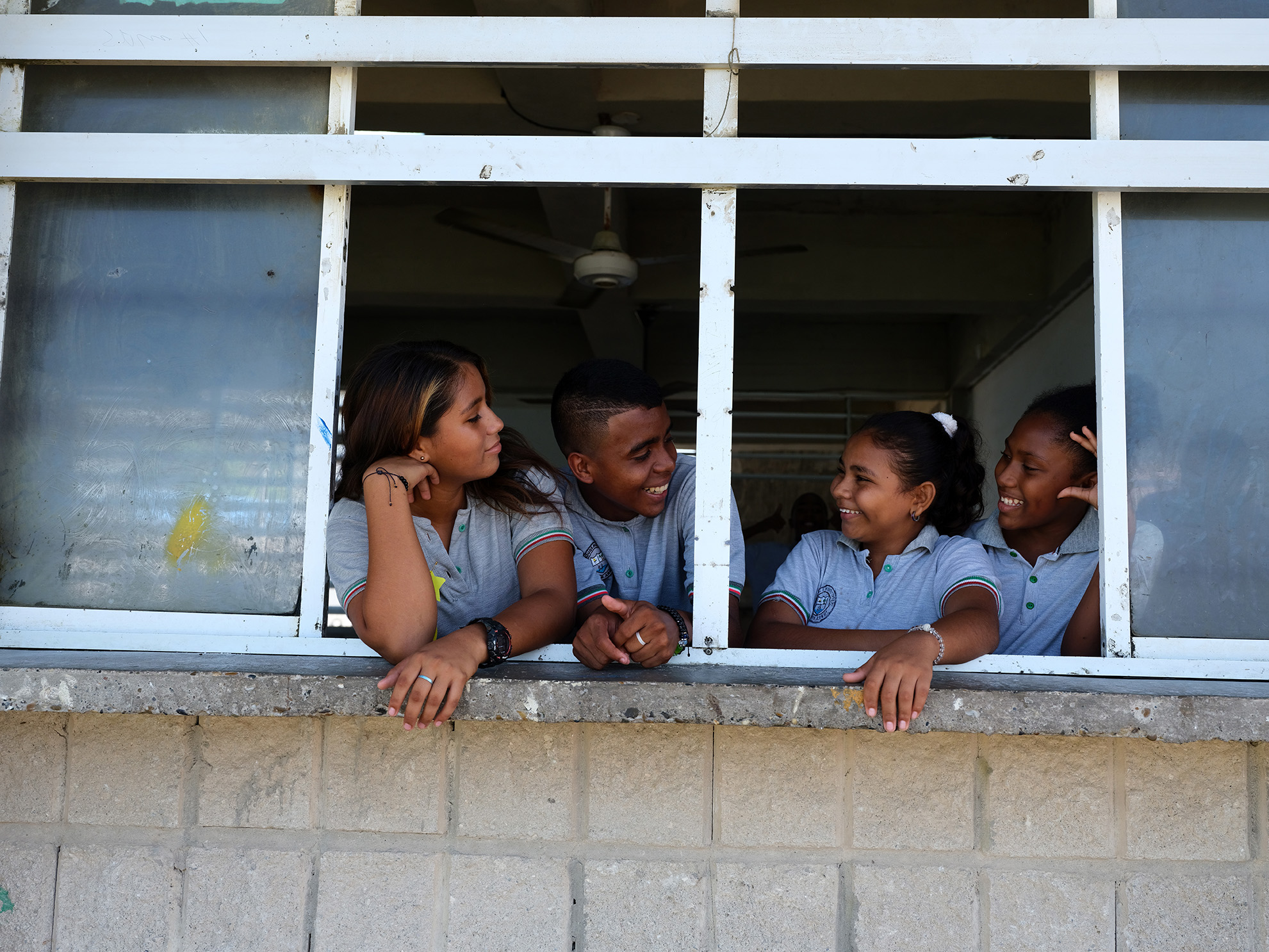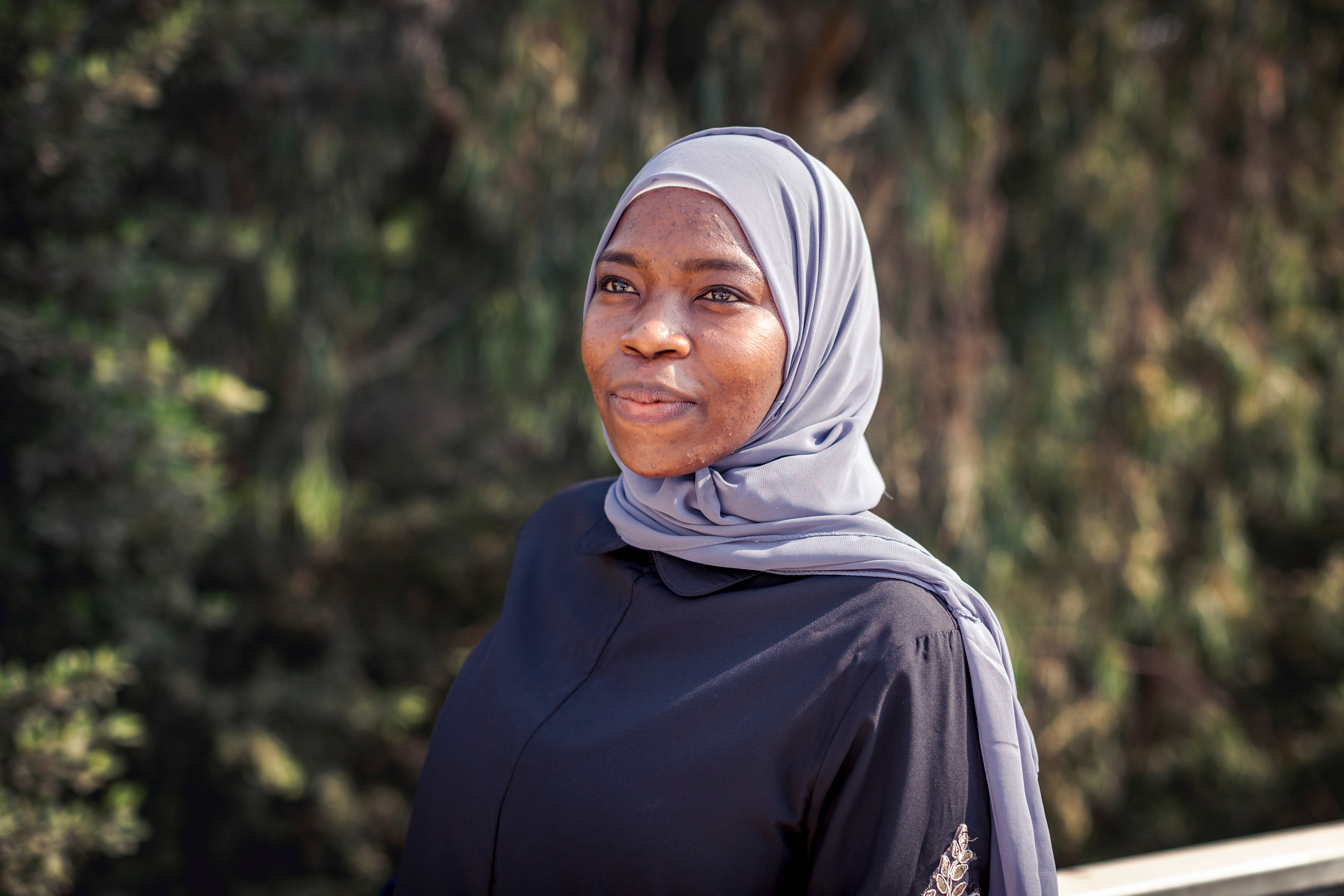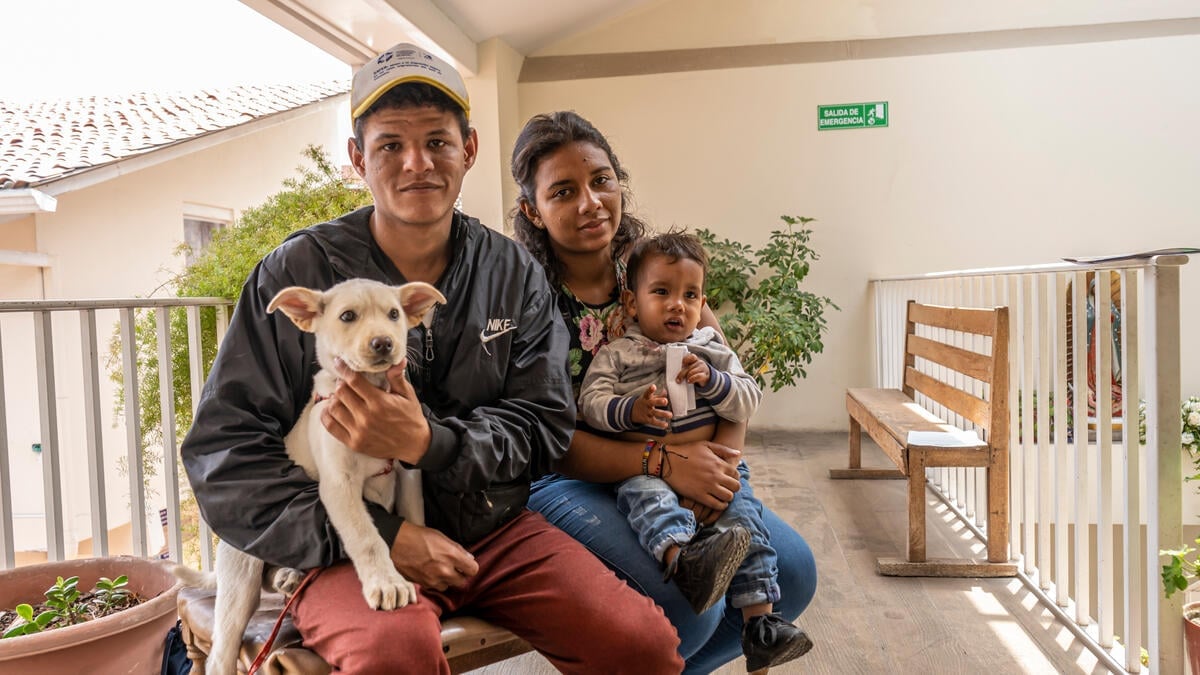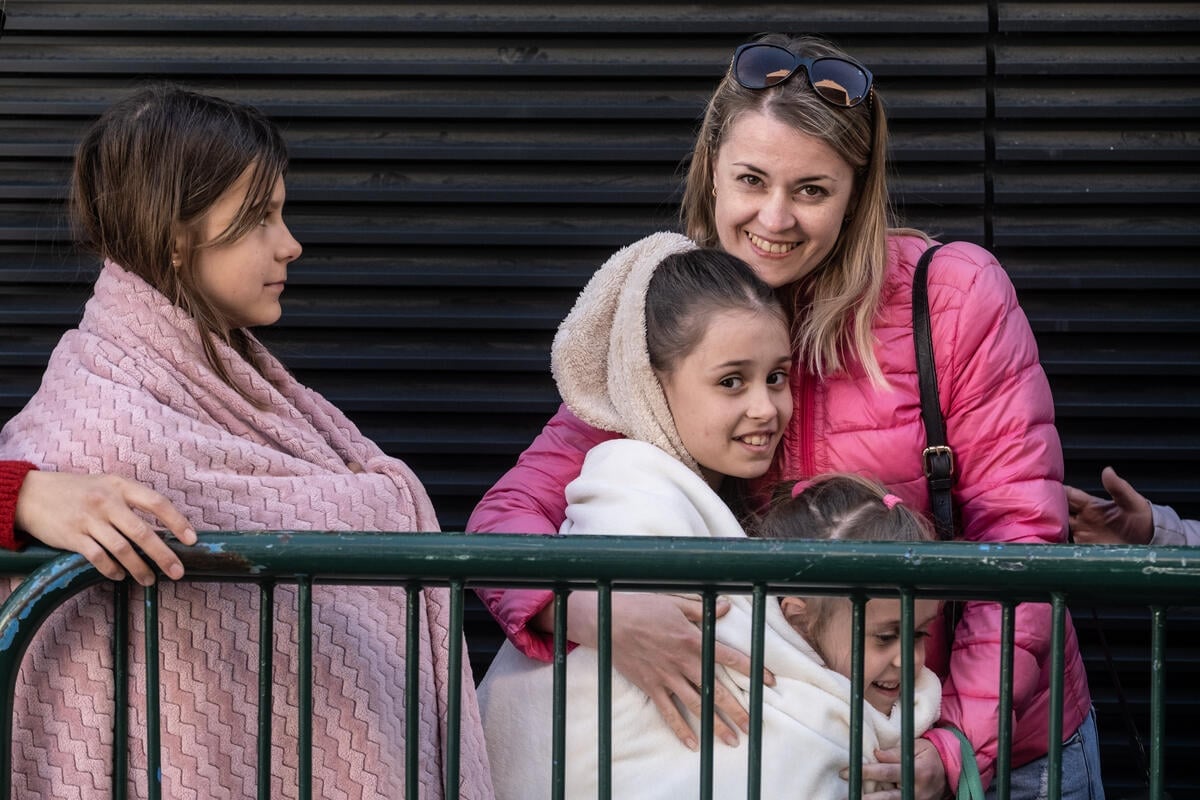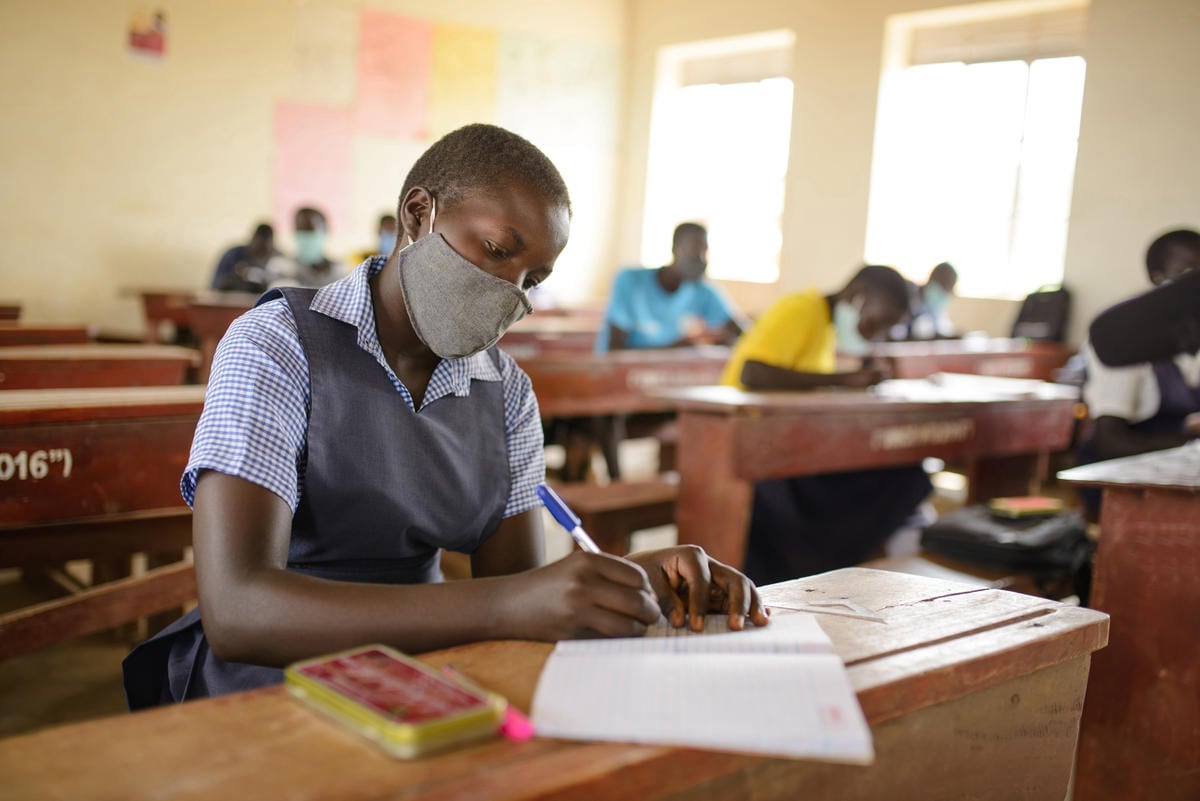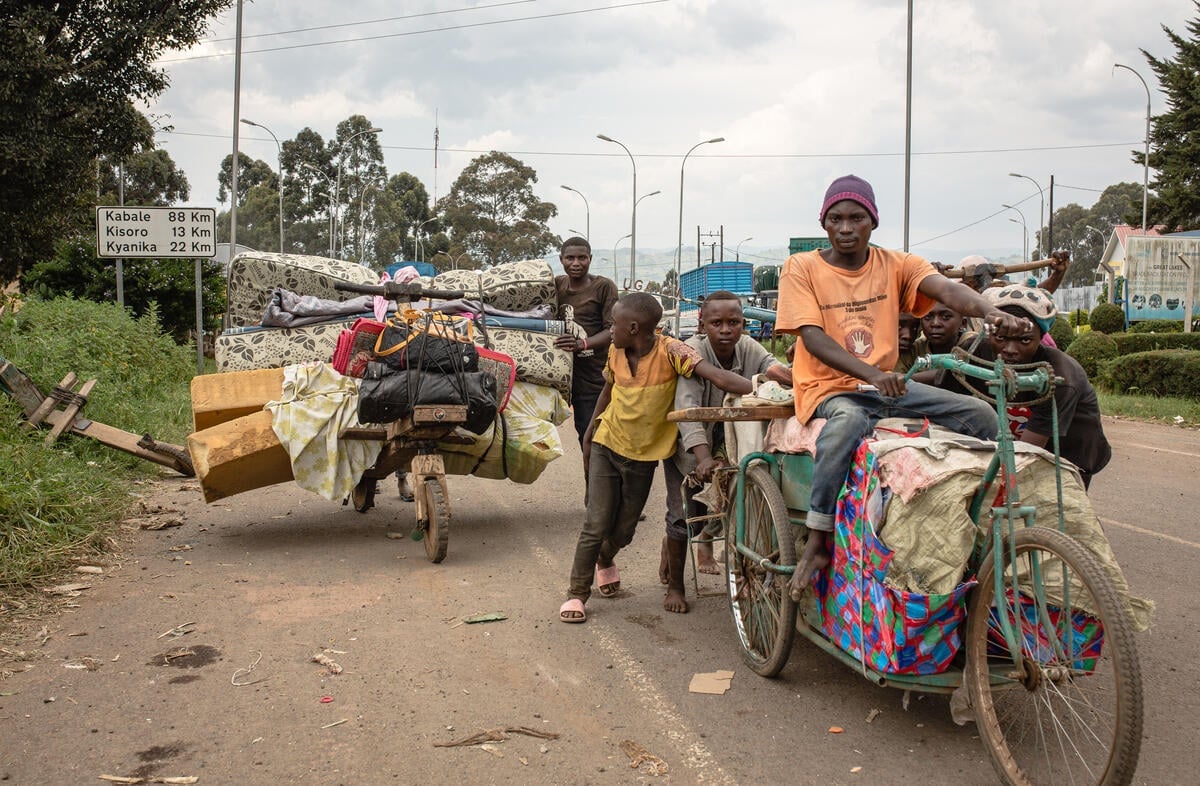New refugee teachers one of the keys to development in southern Sudan
New refugee teachers one of the keys to development in southern Sudan

KAKUMA, Kenya, January 29 (UNHCR) - Grace Anyieth has wanted to be a teacher since she was a child, but she now sees it as more than just a vocation after years of exile from her troubled homeland. The 24-year-old plans to use her chosen career to help in the development of southern Sudan, which is emerging from a civil war that killed some 1.5 million people over more than two decades.
She has taken a step in the right direction, recently completing and passing a UNHCR-backed primary school teacher training course at the Kakuma refugee camp in north-west Kenya.
"I wanted to become a teacher, so that I could bring change to my people in south Sudan," said Grace, who fled to Kenya in 1992 after her father was killed and the family home destroyed in Bor county, Jonglei state. "Education is the only key to bring development in any country; it enables people to be self-reliant and aware of their rights."
Grace was one of 215 refugees at Kakuma, almost all Sudanese and including about a dozen women, to sit exams last September for their International Primary Teacher Education Certificate. An impressive 83 percent passed, with 10 percent receiving distinctions.
Many of the course graduates have already returned to southern Sudan, where a fragile peace has been in place between the Sudanese government and the rebel Sudan People's Liberation Army/Movement since January 2005.
Armed with their internationally recognised qualifications, the Kakuma graduates will be in big demand in an area lacking an educational system and infrastructure and desperately short of trained teachers to cope with an influx of returnees.
"The illiteracy rate in southern Sudan stands at almost 85 percent, one of the highest in the world, and almost 80 percent of the schools are in temporary structures or under the trees," Edward Kokole Juma, a top education official in southern Sudan's administration, said.
A report recently released by the UN Children's Fund (UNICEF) and the Southern Sudan Ministry of Education Science and Technology said there were 758,207 students attending 2,922 schools in the south of the country. The survey said these schools were served by 17,920 teachers, but added that most of them lacked formal training or adequate educational qualifications.
In a bid to help further boost the education system in southern Sudan, UNHCR and its partners in the scheme are looking at the possibility of relocating the Kakuma teacher training course to southern Sudan, possibly the town of Juba.
"We are aware that South Sudan requires a large number of trained teachers, especially now as refugees return home. We realised that the teacher training college would have an even bigger impact [if located] in South Sudan in the development of the education system, than it would have had in Kakuma," said Mahmood Syed Hussain, head of the UNHCR sub-office in Kakuma.
The teacher training programme was established in Kakuma two years ago with the collaboration of the UN refugee agency, the Kenyan government and the United Kingdom-based Windle Trust International, which runs the course with the help of teachers from Kenya's state education sector.
It was aimed at unqualified but bright primary school teachers who had studied at the camp's secondary schools but failed to secure university scholarships. The Kenyan government also developed a landmark syllabus tailored to the training of Sudanese refugees to become primary school teachers in southern Sudan.
The new graduates know that a lot is expected of them. "It is now our responsibility to rebuild our country through educating our brothers and sisters who did not get a chance to go to school," said Peter Madit. "Many people are returning and they will need us to provide the education," he added.
As for Grace, she may have achieved one dream, but she has plenty more. "I have a dream that South Sudan will one day have many schools and many educated leaders. I have a dream that I will teach one of its women leaders," she said with a smile.
By David Mwagiru in Kakuma, Kenya


